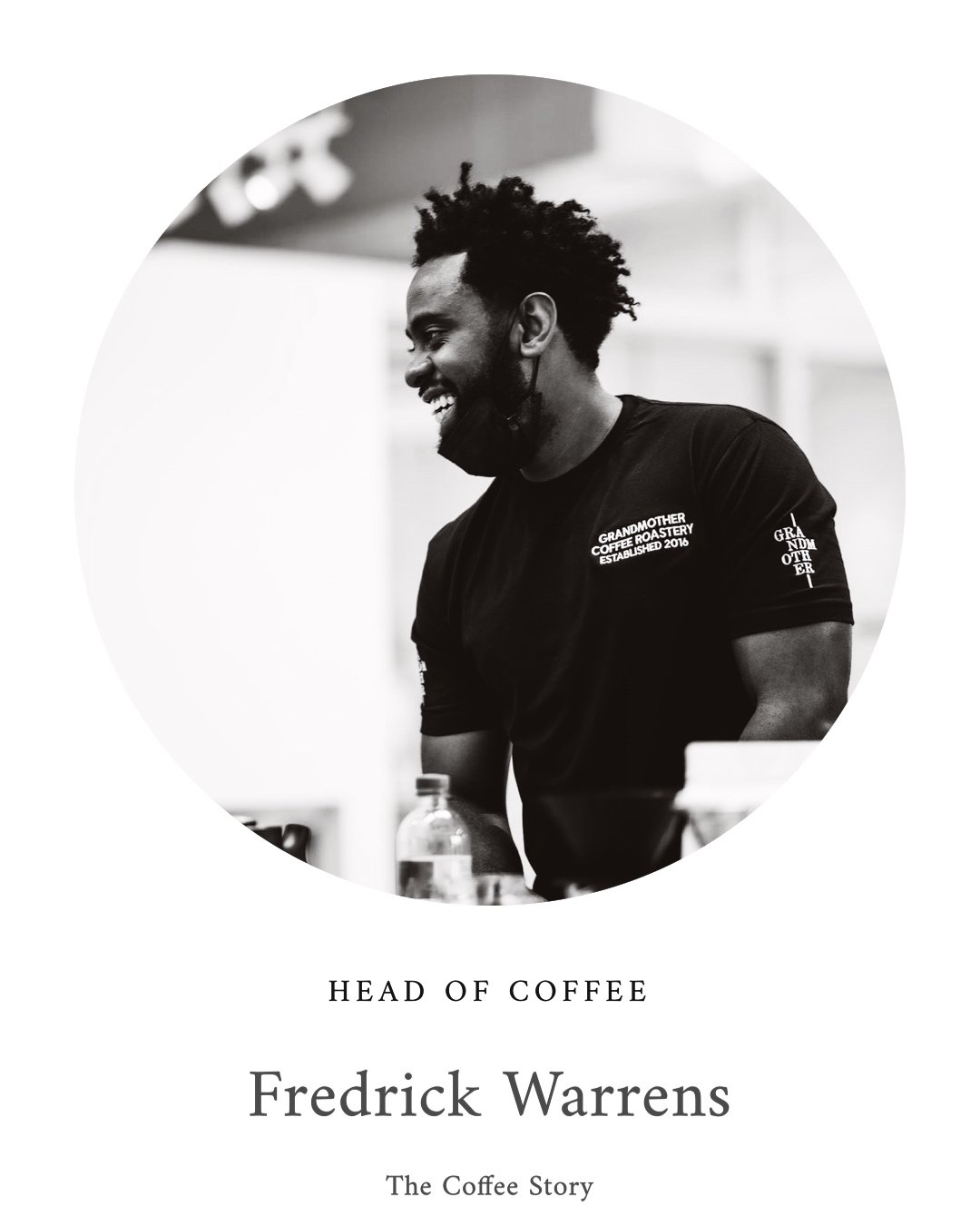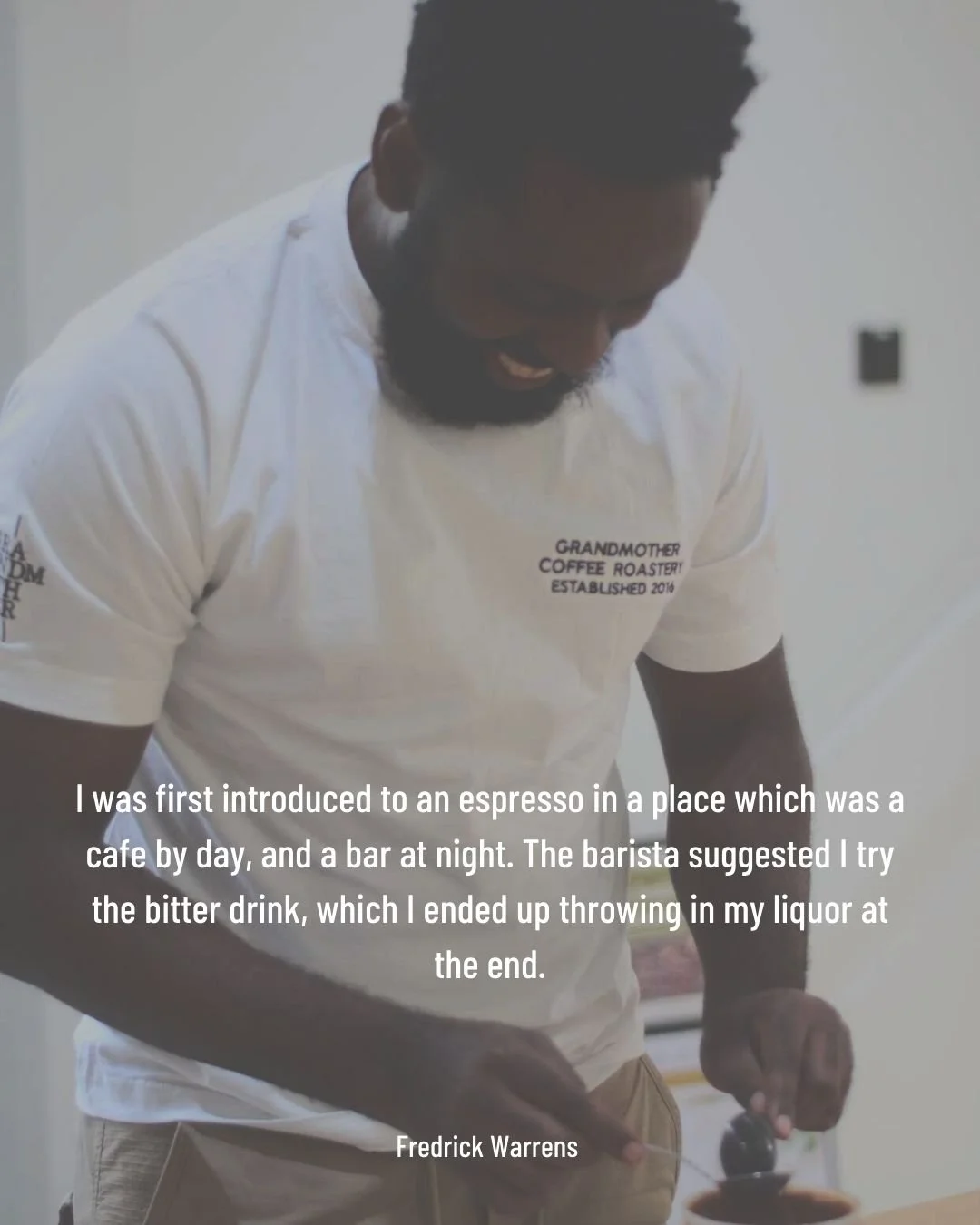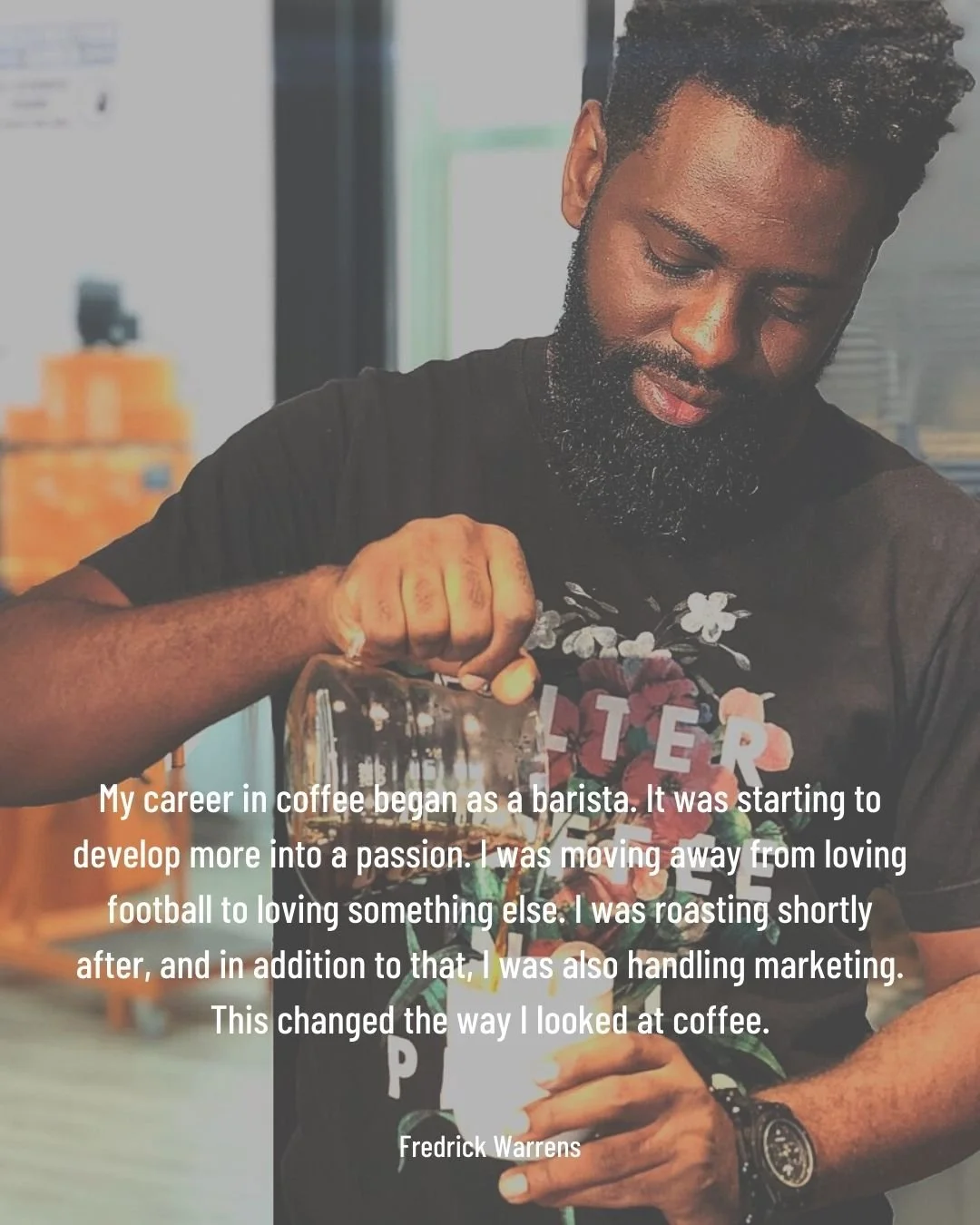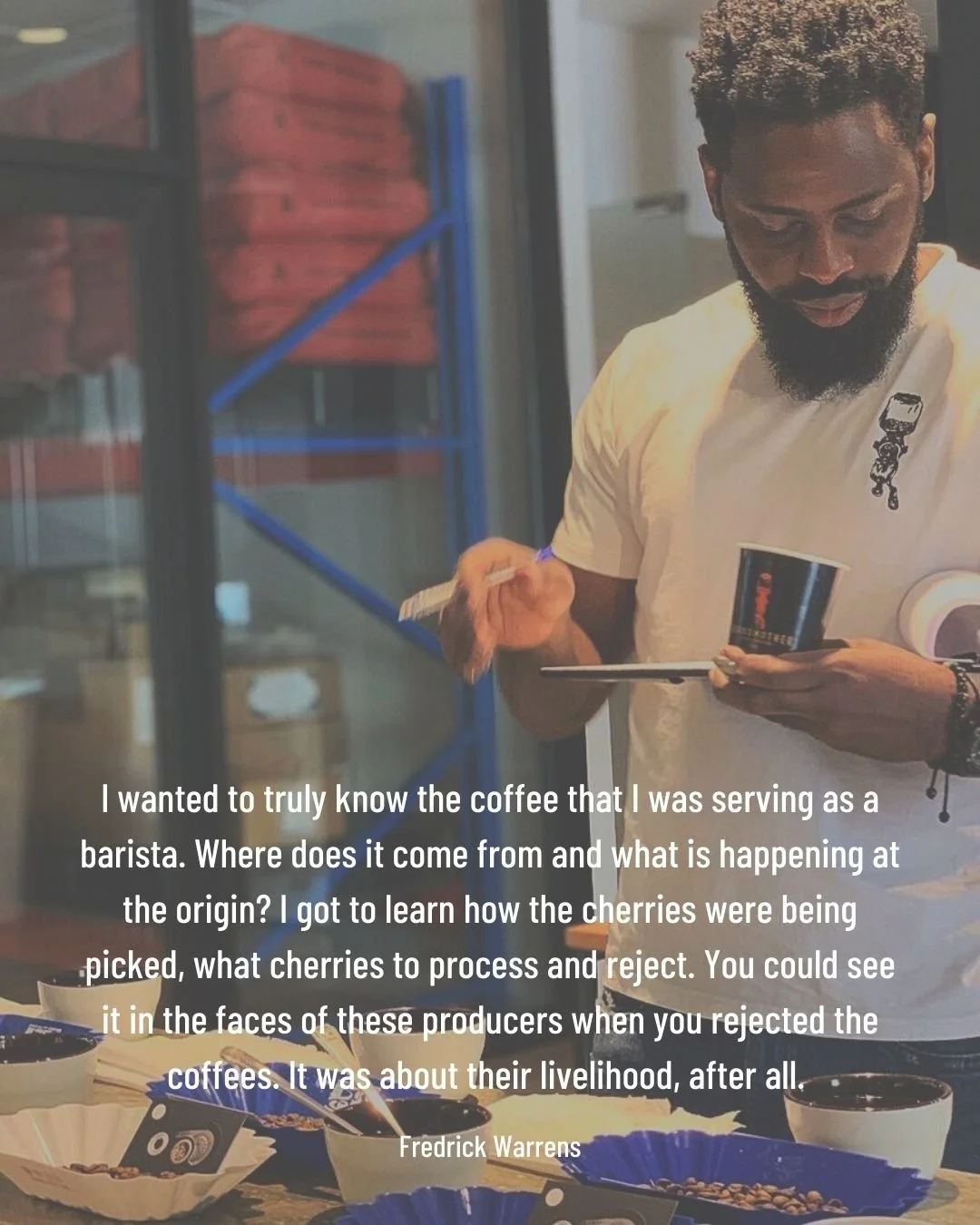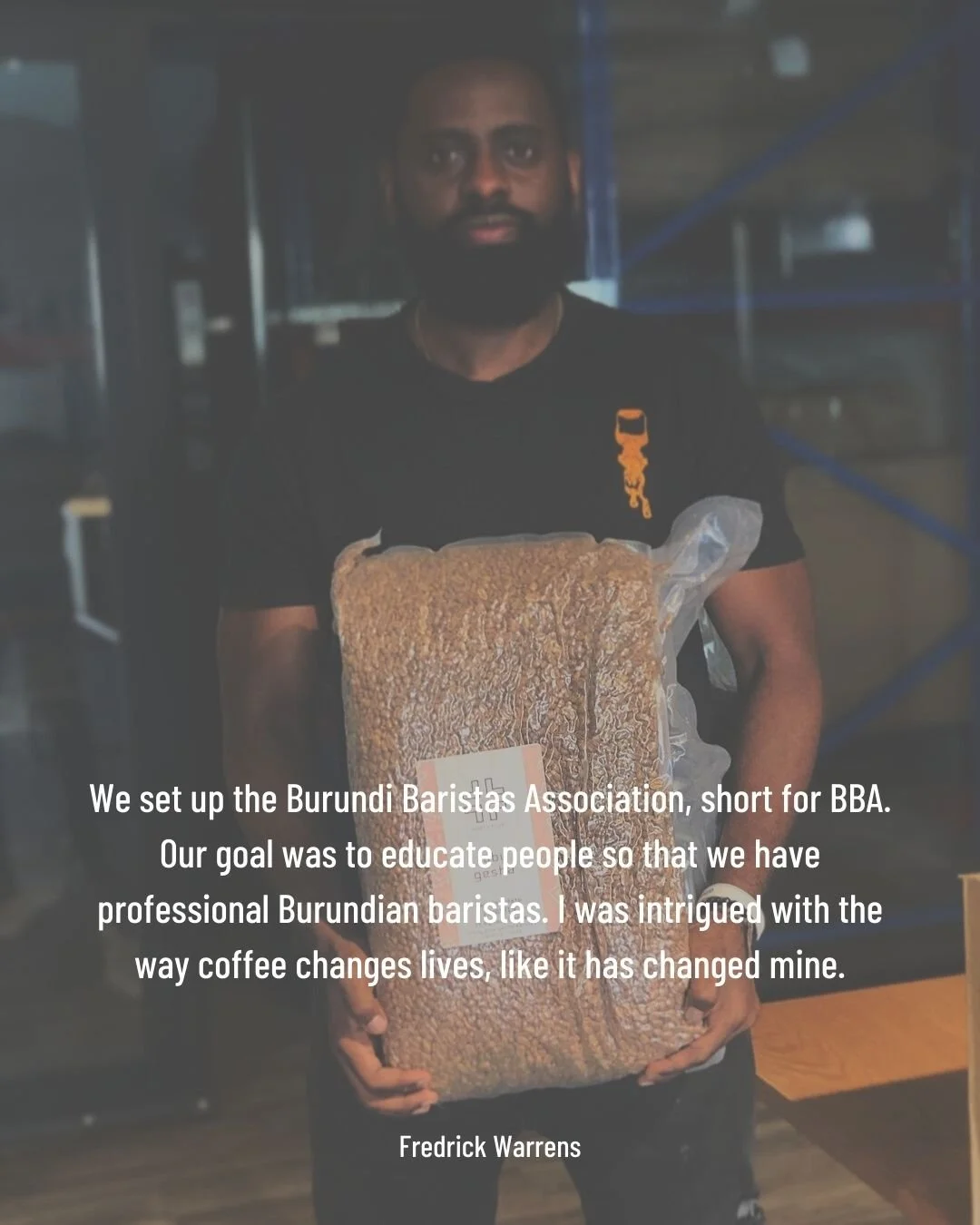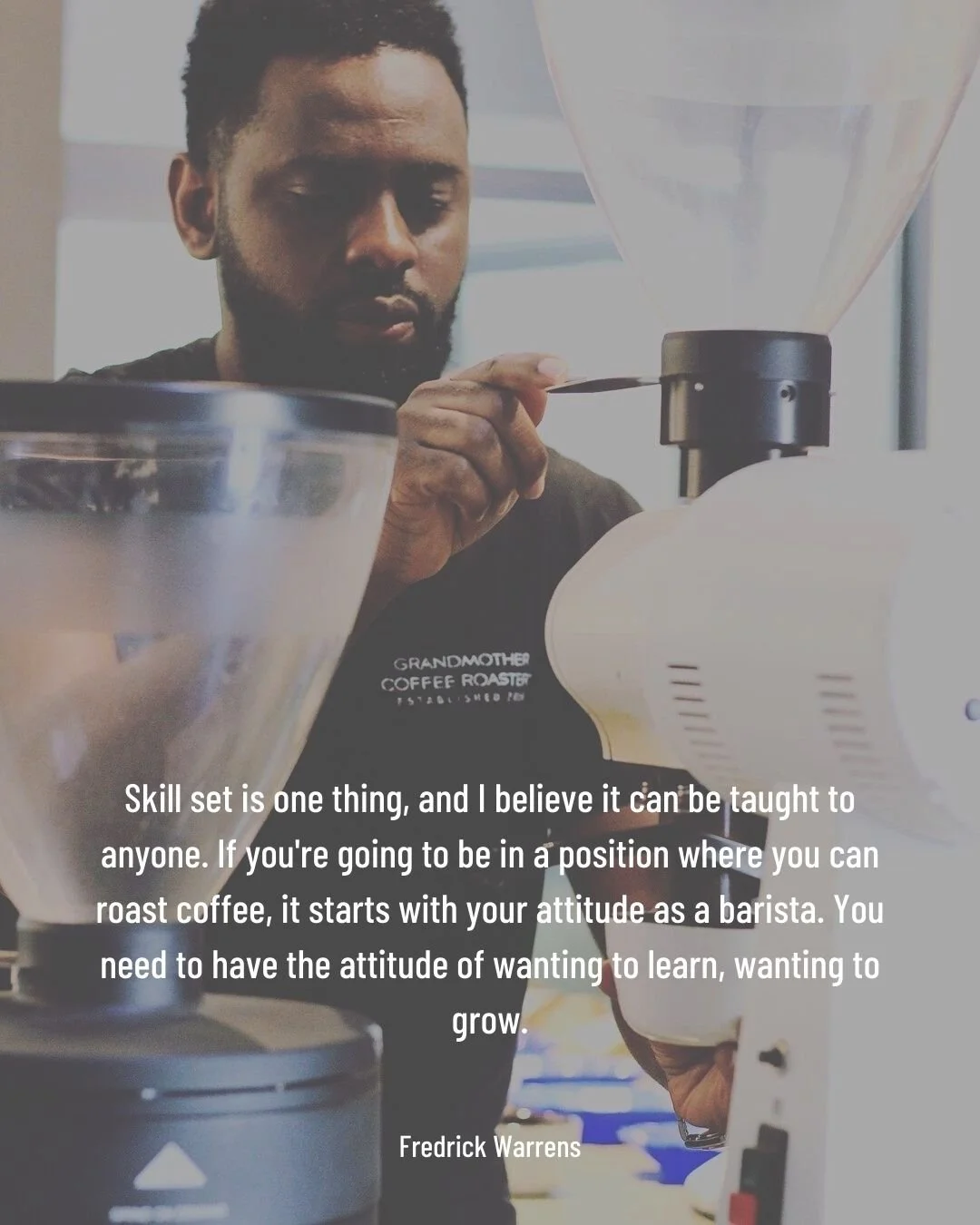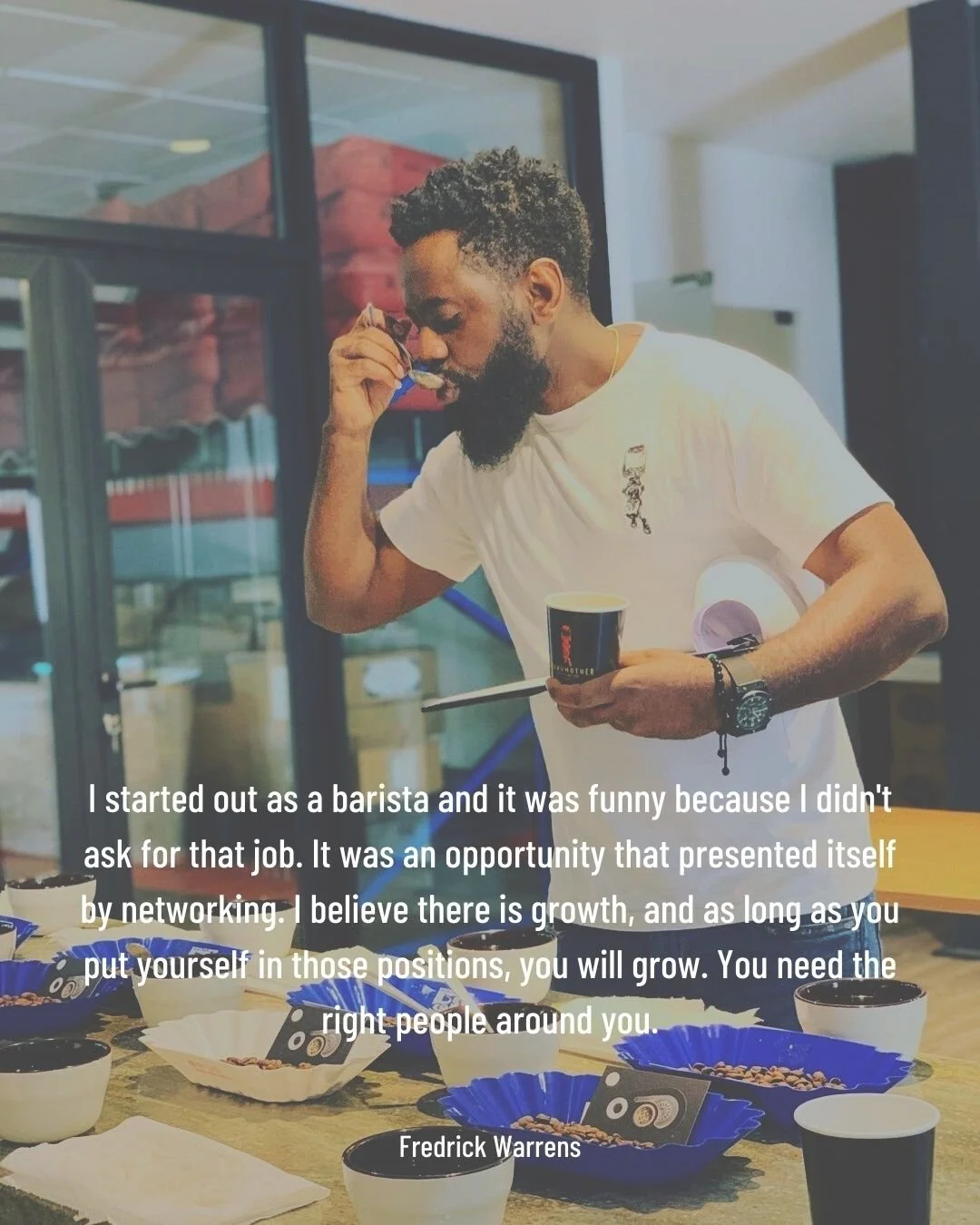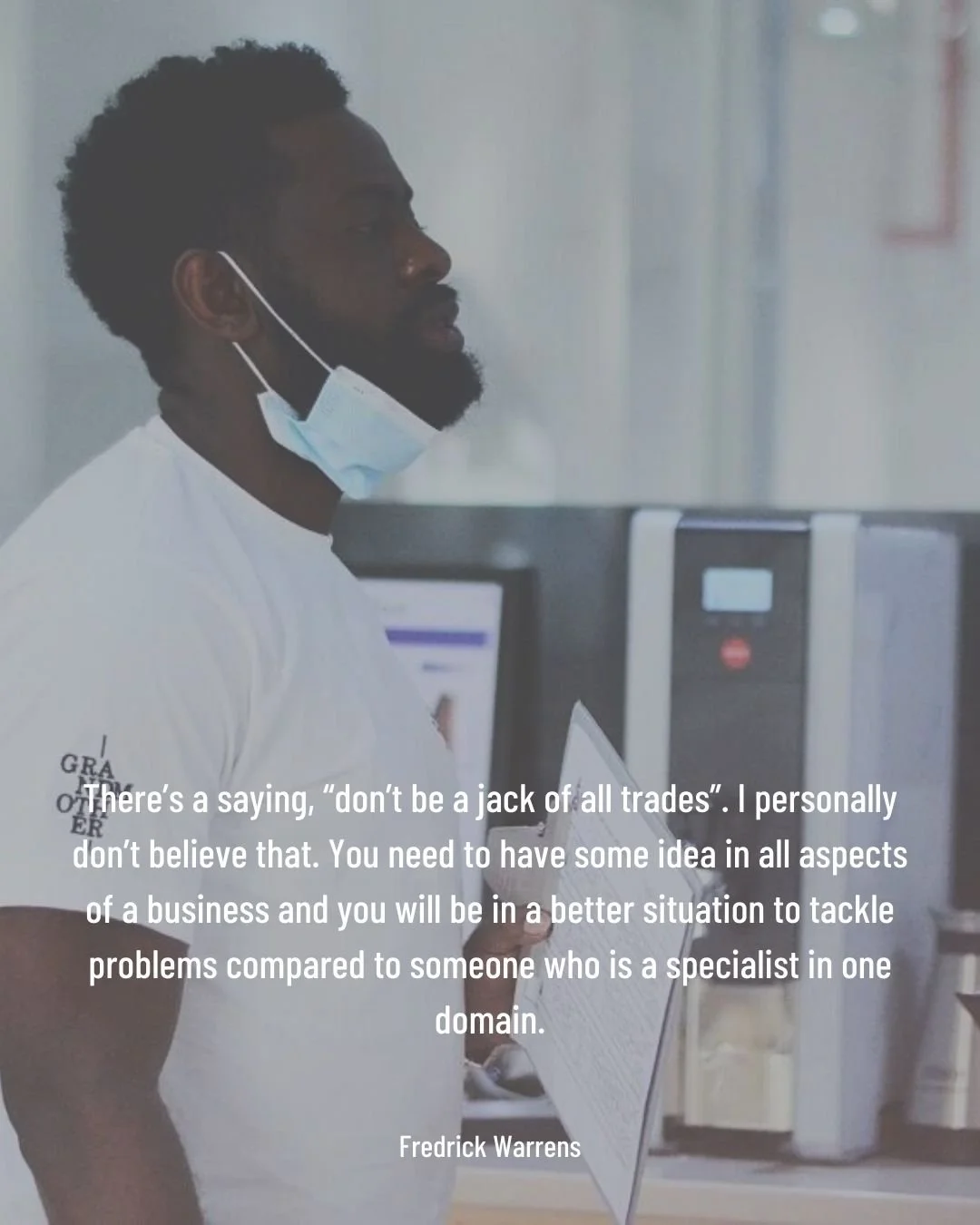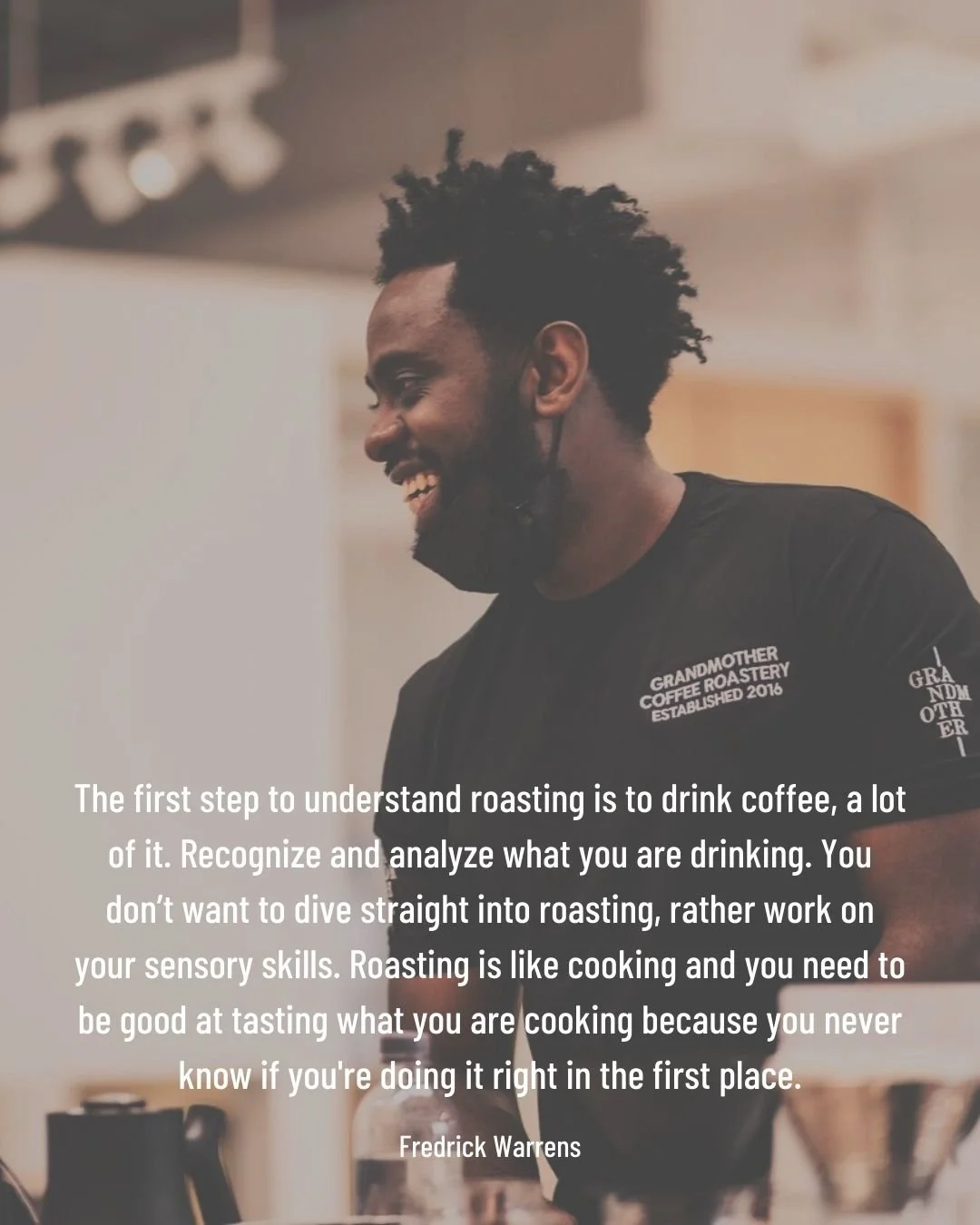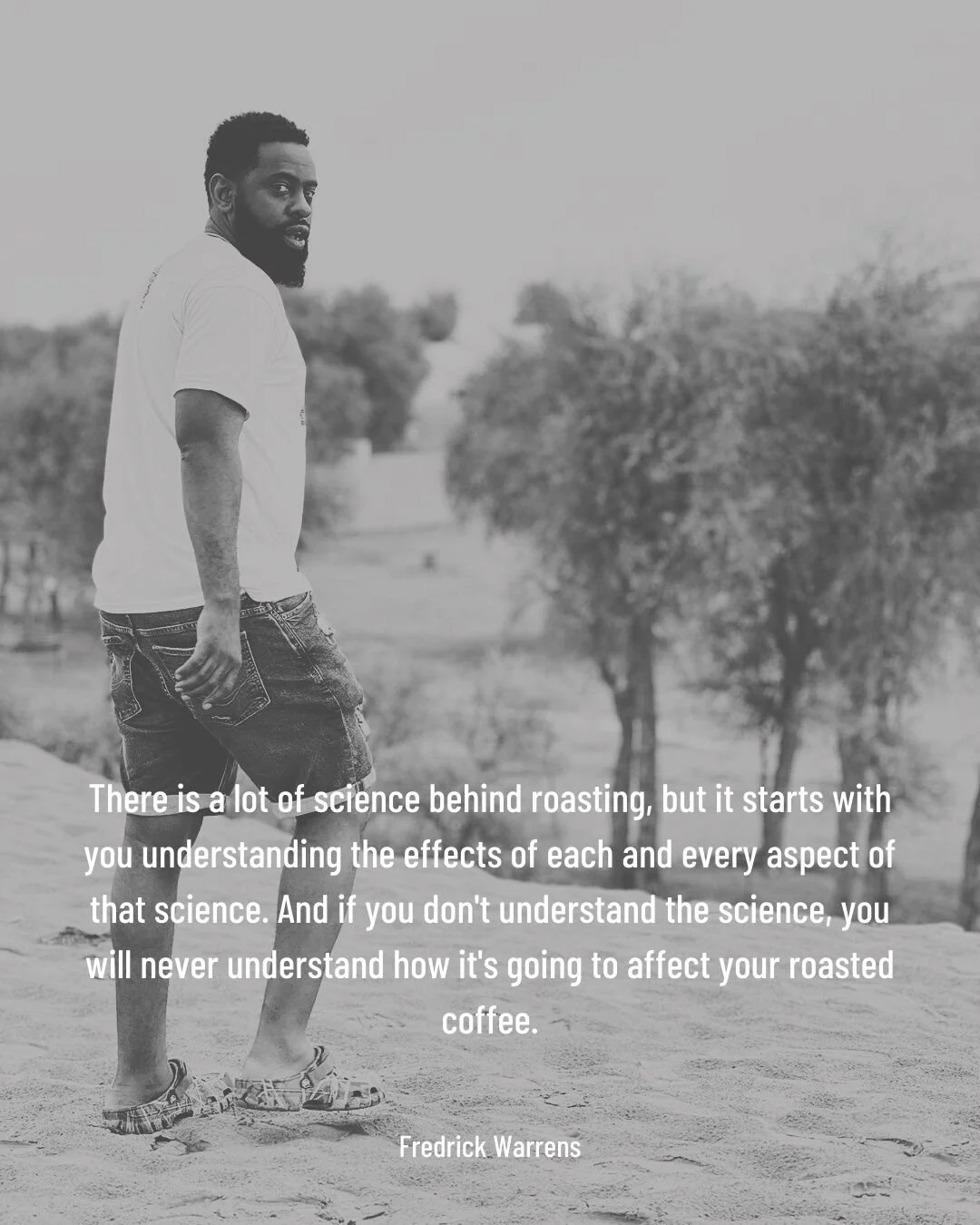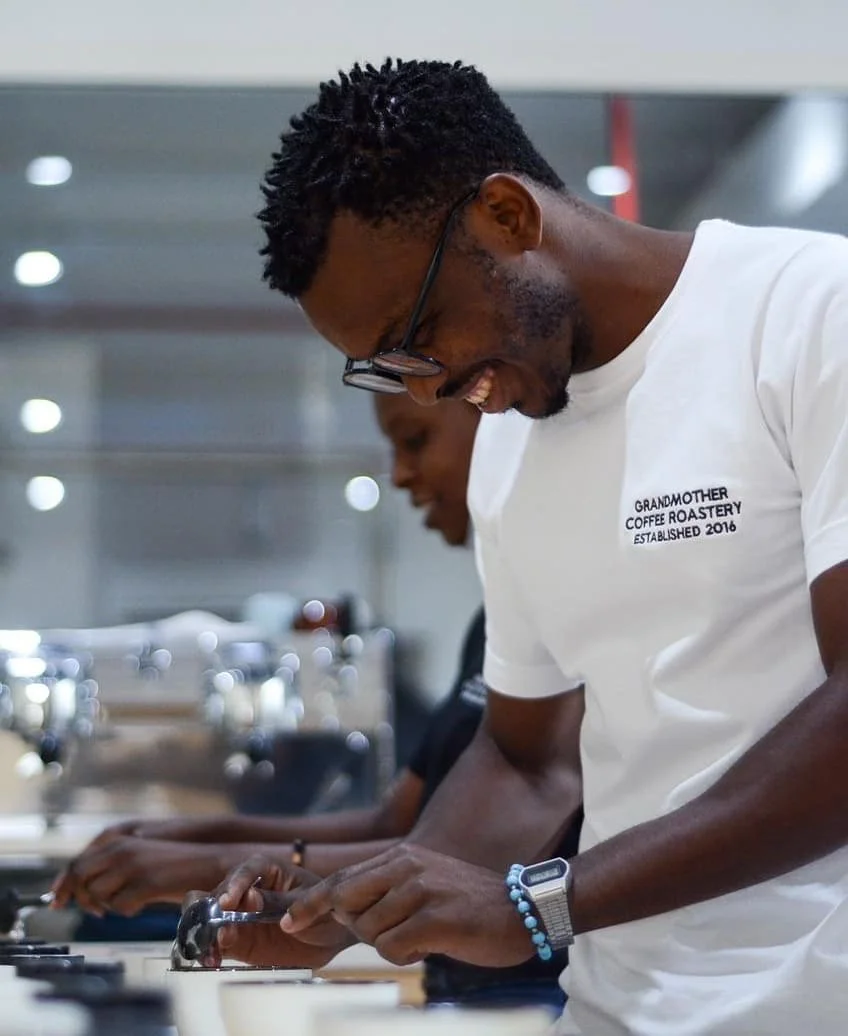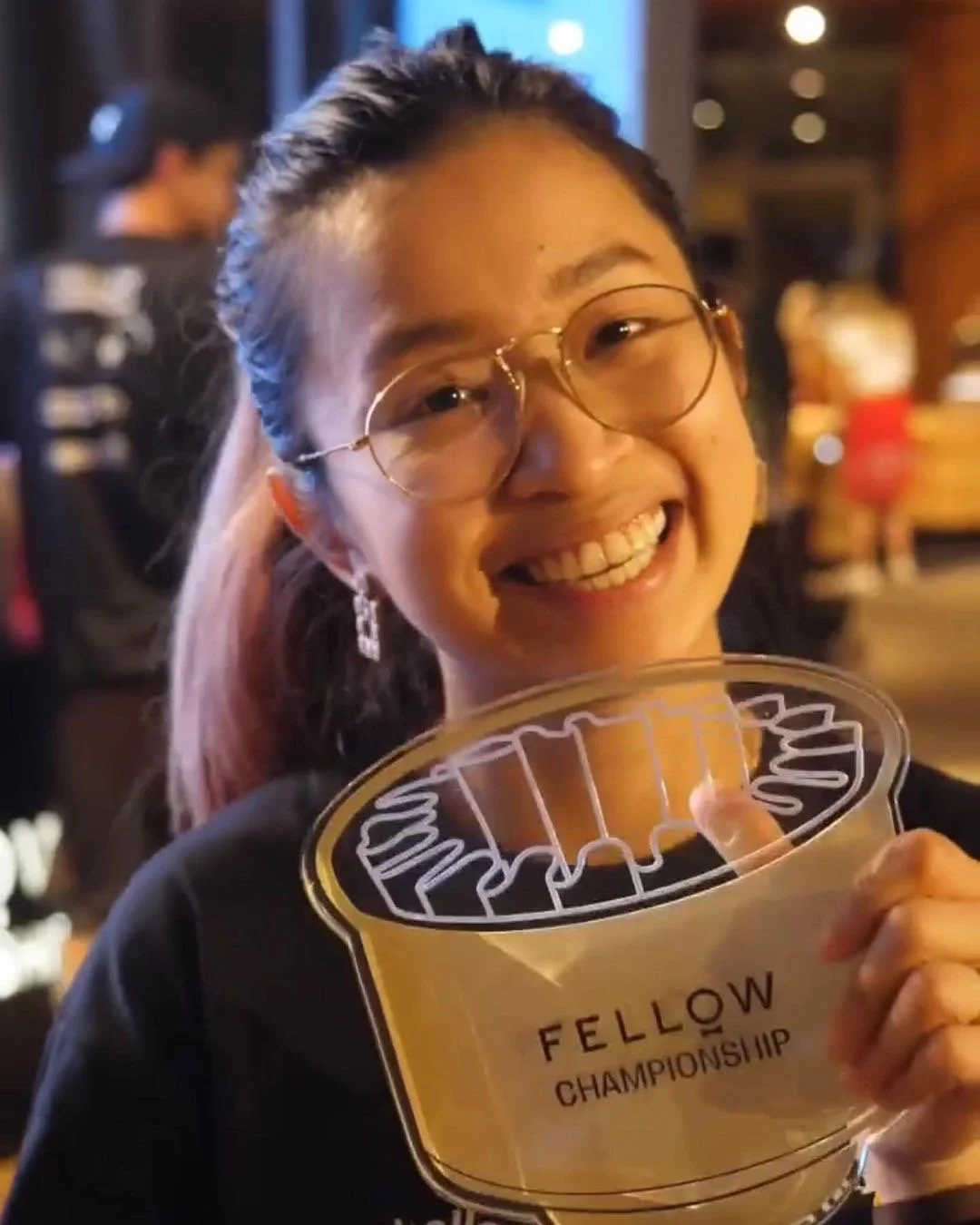The Coffee Story: Fredrick Warrens
Time flies when you talk coffee with like-minded people. There’s never a dull moment at Grandmother Coffee Roastery, and I have said it many times before. The team will keep you involved in riveting conversations revolving around farming, coffee processing, roasting, and education in the coffee industry.
I have already featured two key members from the Grandmother team on The Coffee Story, and I cannot close this chapter until I sit one on one with the man who heads this roastery. Fredrick Warrens got into coffee in the most unexpected way possible, from being a barista, to being stationed at a washing station, proceeding to setting up an NGO at Burundi, and his story doesn’t even end there. He’s quite possibly done it all, with goals of achieving more.
A pre-warning to those that think this is going to be a quick read. A man with so much experience will only result in a post this long but truly worth reading in my opinion. In this conversation, are nuggets of valuable information that are relevant to people looking to grow and expand their horizon. Coffee producing country anecdotes are great, but, people and their love for coffee origin stories are even better. And now, over to Freddie.
How did you embark on this coffee journey?
My coffee journey started a decade ago. I was first introduced to an espresso in a place which was a cafe by day, and a bar by night. The barista suggested I try the bitter drink, which I ended up throwing in my liquor at the end.
I conversed with this barista multiple times, talking about work in general. That's what piqued my interest in coffee. We soon became friends, and later I found out that he was no ordinary barista, he was the national barista champion of Uganda at the time. He was preparing to represent his country in Bogota, Colombia.
He offered me to work with him. I knew working in the coffee industry didn’t pay well. My work at the time was contract based, there were times when I was off for a couple of months. I didn’t join him at first but kept the option open. I eventually opened a business with a friend and working as a barista became the extra source of income. During this time, he was preparing for the barista competition.
I don’t think I was supposed to know that much information for someone at my level. I went with him to places where he was sourcing his coffee to use in the World Barista Competition, experiencing where the coffee was coming from, how the cherries were picked, and methods of processing.
I visited the Uganda Coffee Development Authority (UCDA) regularly in the first few months. All of these activities inspired me to believe that I could pursue this further. Do you remember your first time when you found out what cupping was? I do, and it was straight up disgusting. It got worse when I saw people swirling the coffee around in their mouth and spitting it out in another cup. That was clearly not what I signed up for.
My friend eventually went to Colombia to compete and that was the beginning of my coffee career as a barista. It started to develop more into a passion now. I was starting to move away from loving football to loving something else. I started roasting in 2012, in addition to that, I was also handling marketing.
This changed the way I looked at coffee. Without a doubt, a competition was next. I was knocked out in the semi finals. But, that didn’t stop me, so I competed again in 2013, and made it to the finals.
Which competition was this?
It was a barista competition. You have to make 12 drinks for the judges. One set of espressos, followed by cappuccinos and ending with signature drinks. All in 15 minutes. Imagine competing with your mentors, it was a lot of pressure.
Did you ever feel like your mentors are the ones who taught me, what if I beat them in the competition? It would have been embarrassing for them and you, right?
I didn't feel that way. They were involved in deciding which coffee and routine to use. After my second competition, I was sent for a two week course in Kenya. I worked on my sensory and my roasting skills.
I was meeting a lot of people who were sourcing and roasting coffee, and this helped me see the whole picture. After coming back, my main task was opening another branch in the capital city, very close to the UCDA.
By the end of 2013, I landed my first roasting job in Burundi. I was called to set up a cafe and roastery. I haven’t consulted before and that was the challenge. Without challenges, I knew I wouldn’t grow, and I wasn’t here to sit idle.
Burundi was thriving with commercial coffee. But I wanted to change that, I wanted to introduce good quality coffee. No, not specialty. I worked at Buja Cafe, named after the capital city - Bujumbura.
The challenges were many, it was a new market and consumer insights were zero. I had to build a team from scratch, hire baristas and assistants, train them, and look after the whole operations.
We tackled one challenge at a time. Burundi was a French speaking country and I could only communicate in English. I took classes simultaneously to learn the language of love, as some would call it.
Next, I wanted to hire personnel who were well versed in English. If you speak the English language in Burundi, you are valuable. We had to think outside the box, and hire university students, who were studying in the morning and willing to work in the evening.
Got it. You mentioned roasting commercial coffee?
I would call it fine commercial and I roasted it light. This idea was not welcomed at first. To change that, I hosted cupping sessions open to the public every week. My goal was to give the consumers a different experience while educating them that this is how a coffee should taste like. When it came to roasting, our first client was the cafe itself. In time, we generated enough interest and other businesses started to use our coffee.
After a few months, we were selling all over Bujumbura. The next step was to look out for farms in Burundi. We wanted to do everything from bean to cup. I also worked closely with the Burundi Coffee Authority, they knew how to run the business but the quality of coffee was always an afterthought. Our first break outside the country came when we landed a big client in Turkey.
Isn’t Turkish coffee roasted dark?
We tried to keep everything between medium to dark. We didn’t want these coffees to be labeled dark roasted. We wanted to differ from what was already available in the market, and that’s what made Buja Cafe stand out. Roast them light and you hear the local population complain. They were not used to the brightness, but it was a good sign for me, because they started recognizing this trait in coffee.
The work was far from done, I had to educate them on everything, on why these coffees tend to taste the way they do. I, then, started connecting with producers and worked along side an American owned entity called Long Miles Coffee Project. It’s an organization that helps improve the livelihood of farmers by sourcing coffees through them. I was working at their washing station and also roasting samples for roasters that were coming in to buy their greens.
I like how you were working backwards, you started off as a barista, then roasting, followed by sourcing and now you're at the farm.
I wanted to truly know the coffee that I am serving as a barista. Where does it come from and what is happening at the origin? I got to learn how the cherries were being picked, what cherries to process and reject. You could see it in the faces of these producers when you rejected the coffees. They didn’t want that, because it was about their livelihood. Training them about quality was important.
So, having this education from both UCDA and ACA (Africa Coffee Academy), couple that with experience on the farm, I then felt like I had to take it to the next level, I wanted to give back to the community. I sat down with three guys, one of them was a former barista champion from Kenya. All of them had more experience in the coffee industry than me. I offered a proposal and this is what I said:
“We are four coffee experts all working for different industries. You can see that Buja Cafe is clearly doing well in terms of growth, that’s probably got to do with the fact that we are a roastery and a cafe, the ball is in our court. But, my main purpose of calling you here is, I want us to change how people look at this industry. I want to start an organization.”
We called it the Burundi Baristas Association, short for BBA. Our goal was to educate people so that we have professional Burundian baristas. We set it up as an NGO. I was intrigued with the way coffee changes lives, like it has changed mine.
We received our first funding from UNICEF. Most of them already knew us and were customers. All we did was invite them and handed them our proposal. Our goal was youth oriented - creating jobs and education. It was support we were looking for and received it from other entities like the World Health Organization and World Food Programme.
We chose a President, who was not only from Burundi but also understood the youth. The person we chose set up sport tournaments, the idea was to transfer their passion from playing sports, which was more of a hobby, to creating jobs that can earn them money.
We opened a training facility with two La Marzocco machines, grinders, and everything you need to train the baristas. We all had a role to fulfill. At first, we started very small training programs. From how the Burundi coffee market was starting to grow and emerge, the country was selected to host the AFCA, Africa Fine Coffees Association.
This was the perfect opportunity to host a Burundi Barista Competition. Every national champion from their respective country will have to compete in AFCA, which meant we needed a Burundi Barista Champion. The coffee industry of Burundi was buzzing, the baristas were excited to see where this was going.
After the success of AFCA, La Marzocco left everything behind for our organization. This was a boost for us. But now, the government wanted in, and we sold the whole project to the government. And that's when the country went into a civil war in 2015, and I decided to step out, and resign.
I went back to Uganda as a freelancer and started working with the local baristas, cafes and hotels to set up coffee bars and menus. I resumed my trips to UCDA to keep my palate active and to network with other coffee professionals. I was called in for another consultation in Rwanda, it was a cafe in a bookshop.
A few months in, as I was setting up the place, training the baristas and sourcing roasted coffee for the cafe, I get a call to work in the Emirates. I had already rejected a few offers in the past because I wanted to contribute and do more for the people back home. This call changed my mind, it was The Espresso Lab and they were looking for someone in QC.
The hype around The Espresso Lab was already making the rounds. I started working as a senior barista and quality control in 2016. In 2017, it was official and plans to open up a roastery was in the making. In 2018, I signed up to be a part of Grandmother Coffee Roastery. I started roasting and handling the operations part of the business.
We were traveling to farms and sourcing coffee, making sure we up our standards and serve exactly what the market would expect from a specialty roastery. Feedback from our customers were important for us to expand to different emirates such as Abu Dhabi, Ras Al Khaimah and Sharjah.
In the midst of this pandemic, we expanded. Two years ago, we started putting this plan to action, and in March 2021, we moved to our new facility. Demand was up, and we got a 15 kg roaster on board. This also meant hiring new personnel, and introducing new departments that we didn't have before. For eg. we didnt’ have a training department, so we bought in Danny to fill that blank.
At that point in time, I was looking for an assistant and I had a few people on my mind. Skill set is one thing, and I believe it can be taught to anyone. I was looking for character. Kim was the first person I called. You know the rest of her story and how she became part of the team.
Kim is a great barista, and if you're going to be in a position where you can roast coffee, it starts with your attitude as a barista. You need to have the attitude of wanting to learn, wanting to grow. That's enough for me.
Did you see yourself in her?
I started out as a barista and it was funny because I didn't ask for that job. It was an opportunity that presented itself by networking. I believe there is growth, and as long as you put yourself in those positions, you will grow. What is important to state here is, you need the right people around you.
We had a challenging time during COVID. We didn’t lose customers, but we lost numbers. We had to adapt, I went from B2B to focusing on B2C. I did a few courses on marketing and management to better understand this whole process.
This is what I like about you. You are bringing other skills outside your domain and applying it to the coffee industry.
You just need to connect the dots. You miss one dot, and suddenly you're missing out on the full picture. If you recall my friend, who offered me the job when I started out, he was not only the cafe manager, but also the one making coffee behind the bar.
As much as I want to take myself away from operations or roasting, I can't do that because I need to come back and test the quality of the coffee. If you take yourself away from the equation, something is going to go wrong. Same thing applies for marketing, how are you going to sell the coffee if you don't know where?
There’s a saying, “don’t be a jack of all trades”. I personally don’t believe that. You need to have some idea in all aspects of a business and you will be in a better situation to tackle problems compared to someone who is a specialist in one domain.
I have one final question for you. If someone wants to start roasting, how do you advise they should go about it?
The first step is to drink coffee, a lot of it. Recognize and analyze what you are drinking. You don’t want to dive straight into roasting, rather work on your sensory skills. How good are you at tasting? Roasting is like cooking and you need to be good at tasting what you are cooking because you never know if you're doing it right in the first place.
Invest in building your sensory skills, learn how to taste and then everything that follows becomes easy. Start with SCAand CQI courses related to sensory, doing it with a professional will help you recognize what you are working with rather than doing it alone. Roasting can become very simple if your sensory basics are solid. I can recommend some books: The Coffee Roaster's Companion and Coffee Roasting Best Practices, both written by Scott Rao.
There is a lot of science behind roasting, but it starts with you understanding the effects of each and every aspect of that science. And if you don't understand the science, you will never understand how it's going to affect your roasted coffee. Once you start putting your hands on green coffee, you will need a Q license. We occasionally hold sensory training to train and recalibrate our palette.
Perhaps next time, we can dive deeper on the topic of sensory.
And, that’s all the time I had with Freddie. He has a wealth of information stored away, and only a good conversation over coffee unlocks that. For those who know Freddie can vouch for that, and for those who don’t, I suggest you head to Grandmother Coffee Roastery.
This interview has been edited and condensed for clarity.

